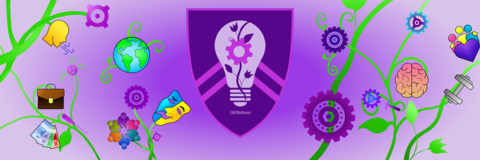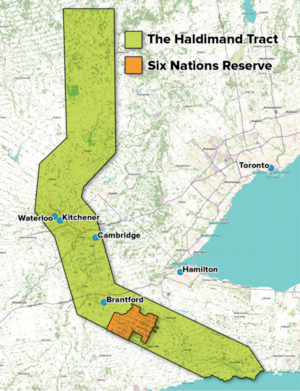
Welcome to the FoE Wellness Program!
What does it mean to have “well-being”? The words “health” and “well-being” are difficult to define. In many ways, it is easier to describe the absence of health and well-being, than it is to describe what it means to have them.
The well-being of our community matters! The Faculty of Engineering (FoE) Community Wellness Program was created to support and promote the well-being of our community throughout the year.
The World Health Organization defines health as:
"A state of complete physical, mental and social well-being and not merely the absence of disease or infirmity."
Well-being goes beyond the aspects of physical health to include other social, psychological, and personal aspects.
Having well-being includes the ability of “an individual or group to identify and to realize aspirations, to satisfy needs, and to change or cope with the environment".
From this perspective, well-being can be seen as a “resource” or “asset” that helps people live their everyday lives. The FoE is currently developing a Wellness framework to guide strategic initiatives designed to improve the well-being of our community. Information on our progress and strategic initiatives can be found on our Wellness Framework and Strategic Initiatives webpage.
In addition, in the FoE, we utilize a dimensional model approach to wellbeing. While there are many helpful models and ways to think of wellbeing, we chose a dimensional model because dimensional models recognize that people have many elements or aspects that contribute to their overall wellness. In the FoE, we utilize the Nine Dimensions of Wellness: physical, intellectual, emotional, relational, spiritual, vocational, cultural, financial, and environmental.
The FoE Community Wellness Program seeks to provide resources, support, and referrals to staff, faculty, graduate and undergraduate students to assist in the strengthening of their nine dimensions of wellness. For more information on models of wellbeing and the nine dimensions in particular, please see our nine dimensions of wellness webpage.
Dial 988
Spotlight on Research: Can Writing with a Robot Improve Your Mood?
Recent research from Hatice Gunes (University of Cambridge) and Batuhan Saysis (Universitat Pampeu Fabra) found that robot-assisted journal writing improved student mood more than voice-assisted technologies
Recipe of the month: Cherry BBQ Sauce
The peak season for cherries usually runs from late June through early August. July is often considered the height of cherry season, particularly for sweet varieties like Bing and Rainier cherries. In season, cherries cost approximately $5/kg (that is a lot of cherries!)
Sweeten up your summer BBQ with this delicious Cherry BBQ sauce recipe!
Recipe of the Month: Yogurt Cherry Parfait
The peak season for cherries usually runs from late June through early August. July is often considered the height of cherry season, particularly for sweet varieties like Bing and Rainier cherries. In season, cherries cost approximately $5/kg (that is a lot of cherries!)
This month, start your breakfast with a cherry yogurt parfait. Although technically you could simply add cherries to your yogurt, the recipe below creates a delicious cherry syrup that has both depth and
Canada's 9-8-8 number for mental health support
As of Nov 30, 2023, people across Canada can call and text 9-8-8, a new three-digit service, for help when they need it most. The service offers trauma-informed and culturally affirming support to anyone who is thinking of suicide, or who is worried about someone they know. While the focus is on suicide prevention, the service can be accessed for any mental health concern.
The Dark Getting You Down? Sign-out one of the FoE Light Therapy Lamps!
The transition from summer sunshine to the chilly months of Fall and Winter can sometimes bring a cloud of gloom. Seasonal Affective Disorder, a type of mild depression or reduction in energy, is caused by a reduction of exposure to sunlight. That's why we're thrilled to announce that the Faculty of Engineering now has Light Therapy (SAD) lamps available for sign-out!
Supporting a Person in Distress
Most of us have complex lives with competing demands and priorities. No matter how strong our coping skills are, there are days when the pressure and challenges are just bigger than our skills. Those moments of overwhelm can lead to feelings of distress. There are many reasons why colleagues or students might be having a difficult time. It is likely that at some point each of us will be called upon to support someone in distress.

The University of Waterloo acknowledges that much of our work takes place on the traditional territory of the Neutral, Anishinaabeg and Haudenosaunee peoples. Our main campus is situated on the Haldimand Tract, the land granted to the Six Nations that includes six miles on each side of the Grand River. It is the belief of the ENGWellness Program that reconciliation must go beyond recognition, and we must acknowledge that as a post-secondary institution, we carry much power and privilege.
We also understand our positionality as wellness supports and how that positionality intersects with the experiences and cultures of the student communities we aim to support. We also recognize that the holistic approach to wellness that we promote is rooted in Indigenous healing practices which further contributes to our institution’s commitment to the Okanogan Charter whose key principles include using “whole system approaches” that “value local and Indigenous communities’ contexts and priorities”. With that spirit, we as wellness supports continue to actively participate in educational opportunities to further explore our nation’s history and the rich heritage of Indigenous, First Nations, Inuit, and Métis (FNIM) peoples. We also aim to continuously examine our positionality and systems of discrimination throughout the conversations we have and the work we carry out. We encourage all of us, as a community, to do the same.
For more information, visit the Truth and Reconciliation Response website.
Map source: Adam Lewis, “Living on Stolen Land,” Alternatives Journal December 2015
We're here to help enhance and support your wellness in a safe, respectful, and inclusive environment. Our offices and spaces are a place where human rights are respected and where 2SLGBTQIA+ people, and their friends and allies, are welcome and supported.


